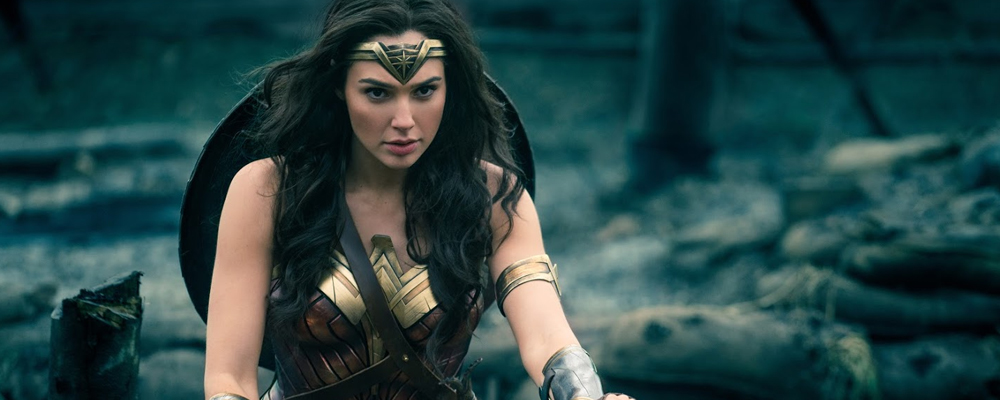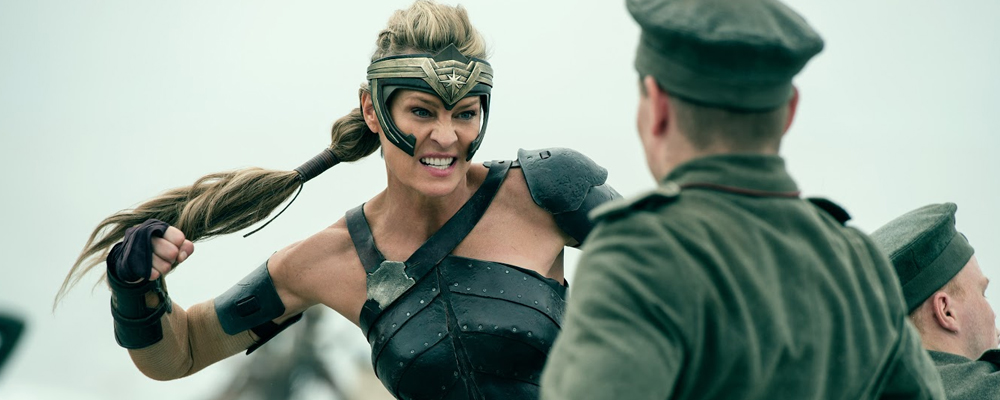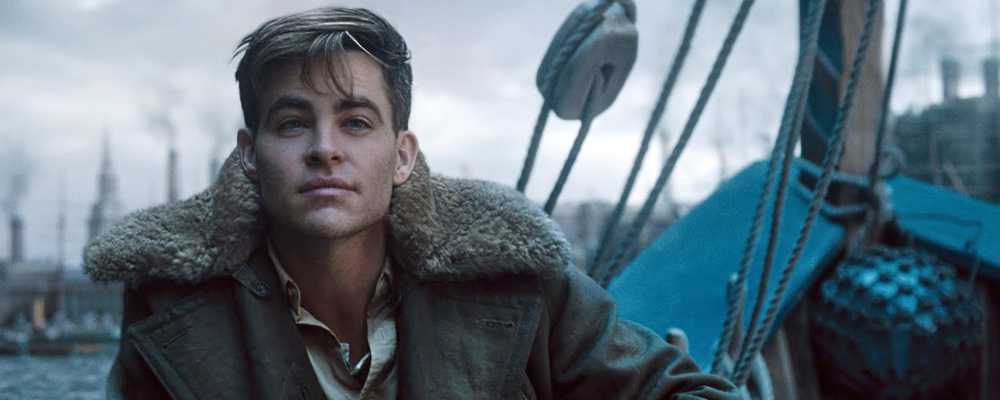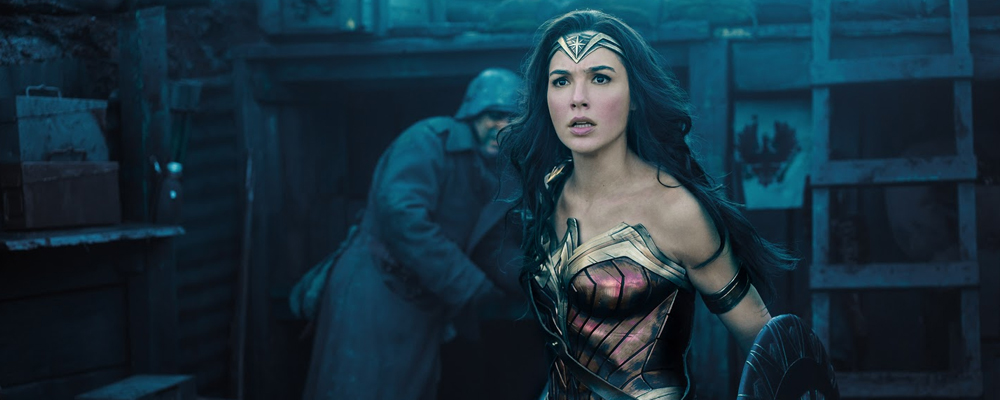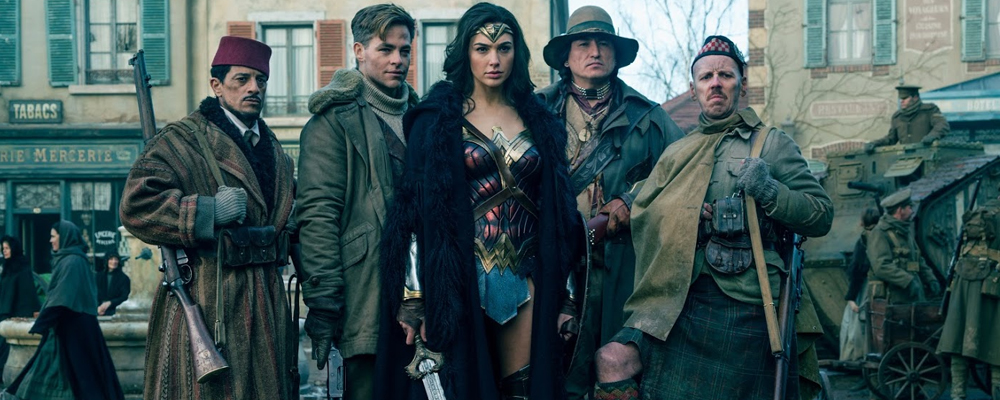‘Wonder Woman’ Is the Female Superhero We Need
Monet Clayton
DC’s “Wonder Woman” is a straight origin story that still has its protagonist questioning her heroism, but rather than make it a story about a hero with feet of clay or an aloof god, Patty Jenkins’ superhero film dives headfirst into a superhero who wants to do good, but needs to understand the weight of her actions. The arc of “Wonder Woman” is focusing on its hero’s desire to do the right thing, and then challenging that desire only to have it reaffirmed and strengthened. “Wonder Woman” is an absolute joy that brings heart, humor, and love to the DC universe.
On the hidden island of Themiscyra, young Diana dreams of being a warrior like the Amazons around her. Despite the protests of her mother, Queen Hippolyta (Connie Nielsen), Diana trains with her aunt, General Antiope (Robin Wright). When Hippolyta discovers their training, she demands that if Diana is determined to fight, she will be the greatest warrior the Amazons have ever known. Years later, an adult Diana (Gal Gadot) is looking over the sea when she sees a plane crash. Rushing to save its passenger, Col. Steve Trevor (Chris Pine), she learns from him that a great war is raging around the world. Believing that World War I is the works of Ares, the God of War, Diana takes some weapons and armor, and heads out with Steve to fight Ares, although Steve, believing Ares to be a myth, is aiming to stop the nefarious rogue German general Ludendorff (Danny Huston) and his chief chemist Dr. Maru (Elena Anaya).
The movie is a bit of a blend between “Thor” and “Captain America: The First Avenger,” positioning Diana as a fish out of water who heads into a war she believes she can win. However, where “Wonder Woman” stands apart is her deep faith in the goodness of men. She believes that Ares has corrupted mankind, and once she kills him, their goodness will be restored. This innocence and naivety could have been off-putting or patronizing, but through Jenkins and Gadot, it’s incredibly refreshing. Diana is no dummy, but there’s not an ounce of cynicism to her, which makes the world-weary Steve a terrific foil for her boundless optimism.
The heart of the movie is the relationship between Diana and Steve, and it never feels perfunctory. The movie is grounded in these two opposing viewpoints, and while both Diana and Steve want to save the world and stop the bad guys, their view of mankind is drastically different. Watching Gadot and Pine banter is delightful, and the movie isn’t trying to force a love story as much as it’s trying to show how these two people are changing each other for the better. For most superhero movies, the love story is usually nothing more than a subplot or something to add emotional stakes, but in “Wonder Woman,” it’s key to the growth of both characters.
Of course, no one will mistake “Wonder Woman” for a sappy love story as Jenkins fully invests in watching her heroine kick all kinds of ass. The action is smooth and fluid, and at points it will make you cheer. I’m honestly a little angry that we only get one scene of the Amazons waging battle because it’s so great to see these warrior women do their thing. But no one will ever doubt Wonder Woman as a hero who can hold her own against anyone. The action is thrilling, and Gadot sells all of it. Her arc in the movie isn’t discovering she has powers or that those powers demand responsibility. Her arc is showing that humanity, as deeply flawed as it is, is worth saving. It’s the difference between reading about war and then seeing it up close and wondering if bad people are still worth our love.
“Wonder Woman” may not challenge the tropes of the superhero movie, but it still questions the nature of heroism and what it means to help people even in the darkest of times. It establishes Wonder Woman not just as a piece of the Justice League or another part of the DC universe. It shows Wonder Woman as a hero worth fighting for, and one who will likely serve as an inspiration for a new generation of fans.
“Wonder Woman” opens nationwide on June 2.

